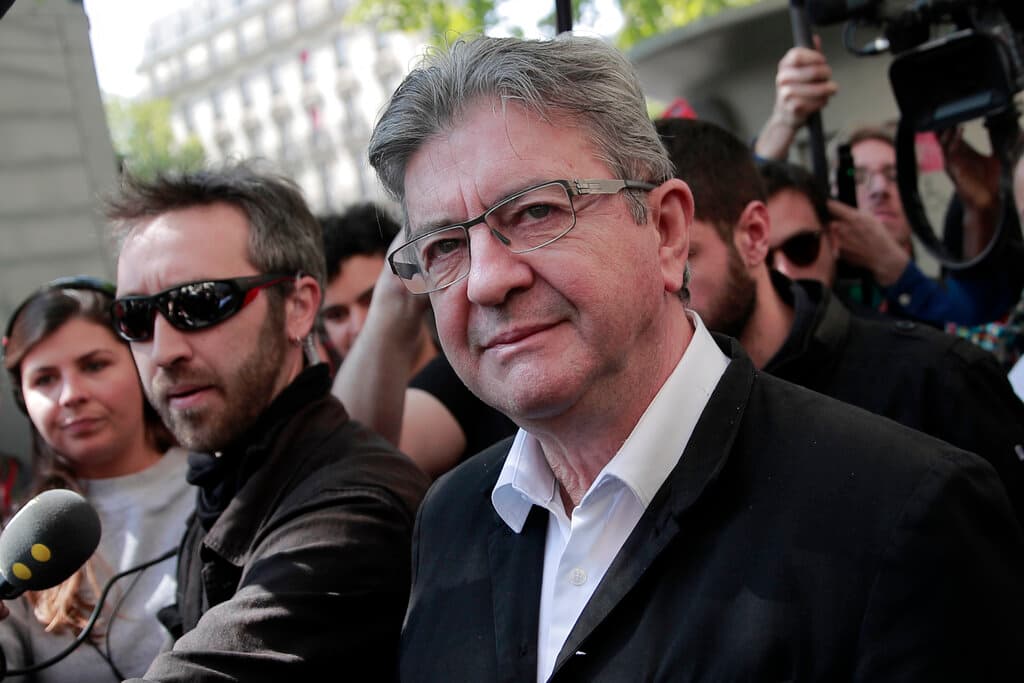Is France Heading for a Civil War?
As French Muslims increasingly align with Jean-Luc Mélenchon’s pro-Hamas party, that danger, for now, comes from the left.

Is France heading to a civil war? Yes — if one is to believe the far-left activists, who keep saying that “they will not allow the far right to rule,” even if they win the coming general election democratically.
According to the latest polls, Marine Le Pen’s and Jordan Bardella’s rightist National Rally and its right-of-center allies may get 36 percent of the popular vote nationwide in the first round, on July 30. And secure an absolute majority in the National Assembly in the second round, on June 7: 295 seats out of 577.
Jean-Luc Mélenchon’s left-wing coalition, the New Popular Front, may get as much as 28 percent of the popular vote and 175 seats. As for the centrist Macronists, they would lag way behind with 23 percent of the vote and 150 seats at best.
If the National Rally fails to win an absolute majority of 289 seats, President Macron’s calculation may be to set up an “anti-Fascist” alliance at the National Assembly. To this end, he would need, in addition to his own party and 30 to 40 moderate conservatives, one half at least of the New Popular Front legislators.
Not an entirely unrealistic scenario, considering the strained relations between Mr. Mélenchon’s own party, La France Insoumise, or France Unbowed, and the Front’s smaller components, such as the rump socialist and communist parties or the Greens.
However, if the National Rally passes the 289 seats limit, Mr. Macron is supposed to call upon Mr. Bardella to form the cabinet. This would be seen as a casus belli by the militant far left. Alternatively, Mr. Macron may cite law and order concerns to bar Mr. Bardella from the premiership and form an “apolitical” or “technical” cabinet. A move that the right may construe as a coup d’Etat.
The far left’s “civil war” threats should not be ignored and are not. Shops and restaurants are already barricading. Mayors — including the most liberal ones — are begging for police and gendarmerie deployment.
They fear “punitive raids” by the well-trained urban guerilla fighters known as the black bloc — a kind of left-wing “Invisible Empire” that periodically pops up in France and in other European countries — and large scale youth riots and arsons, just like one year ago.
Even more ominous is the ethnic/religious dimension of the crisis. The French take much pride in laïcité, their traditional “wall of separation” between government and organized religion. Only religion — both as faith, culture, and community identity — is back on the map with a vengeance.
It is, first and foremost, a consequence of Islam’s spectacular rise over the past 50 years: a 1,100 percent growth, to about 12 million in 2024 from 1 million in the early 1970s, thanks to high communal birth rates, mass immigration, and conversions.
According to a poll from Institut français d’opinion publique for the Catholic newspaper La Croix released on June 13, some 83 percent of the French Muslims focused in the recent European parliament elections on Muslim interests only.
As a result, 62 percent of them favored Mr. Mr. Mélenchon’s utterly pro-Hamas France Unbowed party — and were instrumental in its resilience in the popular vote.
The electoral weight of the French Muslims will probably grow in the coming years, and so will Islam’s grip on the French left. Besides the Muslim community’s demographic dynamism, the Muslim electoral turnout must be considered: 41 percent of the Muslims voted in the Euro-elections, against 73 percent of the Catholics, 57 percent of the Protestants, and 46 percent of the non-affiliated.
They may be bolstered, however, by the relative success of an Islamized France Unbowed party and be inclined, from now on, to register more and vote more.
The rise of Islam seems to have steered an identitarian backlash among traditional Catholics. Until recently, they were reluctant to vote for the National Rally. On June 9, they changed their tune drastically: 42 percent of them favored Mr. Bardella.

